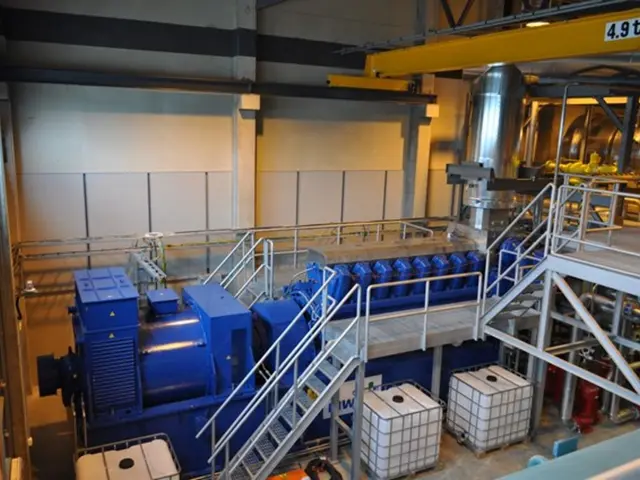Thyssenkrupp Announces Transformation into Strategic Holding Company
Thyssenkrupp undergoes restructuring into a parent corporation.
Thyssenkrupp, the industrial conglomerate, is set to undergo a comprehensive restructuring, evolving into a strategic holding company. This transformation is in response to growing demands for greater agility, transparency, and value in each business unit. The new model is expected to be unveiled to the supervisory board by the end of this fiscal year.
The anticipated shift is anticipated to involve a reduction of the headquarters staff from the current 500 to 100 employees, alongside planned cuts in administration, affecting around 1,000 employees. This move is a response to the challenges faced by the organization, as it seeks to shed excess weight and streamline operations.
In line with this strategic realignment, Thyssenkrupp intends to make all business areas independent and open to third-party participation. The steel division and Marine Systems have already taken the first steps, with plans for a 50:50 joint venture and a public float, respectively. Material Services, Automotive Technologies, and the Decarbon Technologies segment are alsobeing prepared for market readiness. The long-term aim is to make these segments completely independent.
Except for the steel joint venture, Thyssenkrupp wishes to maintain majority control over the other business areas. The transformation is also expected to see an extension of CEO Miguel López's contract, with the supervisory board set to vote on the matter on September 16.
The restructuring comes amidst challenging market conditions, with the traditional steel business facing high costs and intense competition from Asia. In May 2025, an agreement in principle was reached with the IG Metall union regarding the necessary restructuring of Thyssenkrupp Steel. A collective bargaining agreement is expected by summer 2025, providing further insights into the scope of workforce adjustments.
The broader transformation could impact other business segments as they become standalone entities, though specific numbers are not currently available for all units. Thyssenkrupp is open to joint ventures and partnerships in other segments, and is breaking economic links where possible to further increase the independence of its units.
In a future move, Thyssenkrupp plans to list a minority stake of its Marine Systems business on the Frankfurt Stock Exchange by late 2025. Other business segments, such as Materials Services, Automotive Technology, and eventually Decarbon Technologies, will also be prepared for the capital markets as market conditions allow.
The transformation is a gradual process, with each business area becoming independent and ready for market entry as the necessary preconditions are met. The aim is to create a leaner, more focused, and transparent industrial entity, better equipped to navigate the challenges of the modern business landscape.
Thyssenkrupp aims to make all business areas independent and open to third-party participation, such as the steel division and Marine Systems, which have already initiated a joint venture and public float respectively. The long-term goal is to list minority stakes of other business segments like Material Services, Automotive Technology, and Decarbon Technologies on the Frankfurt Stock Exchange as market conditions permit, signaling a shift towards financial independence in each unit of the transformed strategic holding company.
In the context of this comprehensive restructuring, Thyssenkrupp expects the broader transformation to affect other business segments as they become standalone entities, fostering greater industry competition in each segment by actively seeking joint ventures, partnerships, and breaking economic links to increase the autonomy of its units, while adhering to the principles of finance and business.








